Haniyeh assassination: How NYT, Telegraph tried to spin narrative on Israeli terrorism
By Maryam Qarehgozlou
After Israel assassinated Ismail Haniyeh in Tehran, the mainstream media sinisterly tried to spin the narrative, disregarding the fact that it amounted to terrorism and a breach of international law.
These corporate-driven media outlets brazenly manipulated the facts to cunningly frame Haniyeh’s assassination as a “blow to terrorism” and a “triumph” for Israel and were reluctant to hold the occupying regime accountable for what constituted a terrorist attack on foreign soil.
On Thursday, one day after the assassination of Hamas political bureau chief, the New York Times, quoting unnamed West Asian and American sources, claimed that the assassination was carried out by an “explosive device covertly smuggled” into the guesthouse where Haniyeh was staying.
The article was co-authored by Ronen Bergman, a Tel-Aviv-based writer who has served in an Israeli military intelligence unit, tried to suggest that there were infiltrators among Iranian security forces, claiming that the bomb had been placed approximately two months ago in the guesthouse.
That theory was debunked by the Islamic Revolution Guards Corps (IRGC), which said the assassination of Haniyeh was carried out by a “short-range projectile” and a “severe explosion.”
However, that didn’t stop other Western media outlets from peddling the same debunked claim, citing more unnamed and non-existent sources “familiar with the matter.”
Britain’s Daily Telegraph on Friday parroted the same narrative and even took it a step further saying Iranian security agents hired by Mossad, the Israeli spy agency, had planted bombs in three separate rooms of a building where the Hamas leader was staying, again citing anonymous officials.
It claimed the operatives immediately left Iran and detonated the bombs remotely from abroad.
Israel had originally planned to assassinate Haniyeh in May when he attended the funeral of Ebrahim Raeisi, Iran’s former president who was martyred in a helicopter crash at the time, the report stated.
Experts say these reports are a deliberate attempt to shift the focus from Israeli terrorism and violation of international law to security breach as the method of assassination is likely to shape the Islamic Republic’s retaliatory response against Israel and the regime’s counter-actions.
“NYT’s report on how Mr. Haniyeh was assassinated is outrageously filled with fake news and is a psychological warfare,” Mehdi Mohammadi, an Iranian national security analyst wrote in a post on X, formerly Twitter.
According to Mohammadi, by implying that the assassination was a security failure, those behind the propaganda operation are striving to signal that a military response is “disproportionate.”
Moreover, the writers of the NYT or Telegraph reports failed to touch on the illegality of such an attack against a person who held a political post and was an official guest in the Islamic Republic of Iran.
Haniyeh was in Tehran to attend the swearing-in ceremony of Iran’s President Masoud Pezeshkian.
In a letter to the UN Security Council last week, Iran’s permanent representative said Haniyeh’s assassination was a “serious infringement” of the country’s sovereignty and territory integrity and constituted a “blatant violation” of international law.
Reports in Western media also downplayed the possibility of escalation resulting from the Israeli regime’s terrorist action on Iranian soil.
The NYT report waited until the fifth paragraph to briefly state that Israel’s assassination of Haniyeh “threatened to unleash another wave of violence” in West Asia and “upend” the ongoing negotiations to end Israel’s genocidal war on Gaza, which has so far killed close to 40,000 Palestinians.
Haniyeh had been a top negotiator in the ceasefire talks to end Gaza’s devastating war, and his assassination was “a serious blow” to truce talks and “a blatant attempt to sabotage peace efforts,” according to Russian and Chinese representatives in the UN.
On Saturday, the NYT in a follow-up report claimed that Iran had arrested more than two dozen people, including senior intelligence officers, military officials and staff workers at the military-run guesthouse in Tehran in response to what it called a “security breach” that enabled the assassination of Haniyeh.
Iran’s judiciary spokesman Asghar Jahangir on Tuesday rejected all “speculations and rumors” about the arrests made in connection with Haniyeh’s assassination.
“Investigations are underway and we are collecting evidence and will report them to the public as soon as they are completed, but no one has been placed under arrest so far,” he said.
The NYT in its second report again failed to back up claims with robust evidence, or provide details on the identities or roles of the two dozen individuals it said were detained, other than unnamed sources.
It only rambled on about how the assassination was a “devastating security failure” for Iran and did not for once hold Israel accountable for how its actions could threaten global security.
None of the above-mentioned reports quoted the analysts who believe that Haniyeh’s assassination could help Israeli Prime Minister Benjamin Netanyahu to keep the occupying regime at war and regain domestic support as he fights for his political survival or lure the US into a new fighting front.
The Israeli media were less euphoric at Haniyeh’s assassination and were more inclined to criticize Netanyahu and warn about its ramifications for any truce deals or exchange of Israeli captives with Palestinians illegally detained in Israeli jails.
On Sunday, the Israeli paper Haaretz ran a story headlined: Assassinating Hamas Chief Ismail Haniyeh helps Netanyahu – but not Israelis.
It said the assassination “directly and immediately” sabotaged the chances of returning captives, and increased the risk of a regional war, in which a “split and divided Israel” is likely to “suffer serious harm.”
Hours later, however, the paper had to tone down its headline and change it: How did assassinating Hamas chief Ismail Haniyeh help Israelis?
“The mainstream media’s immediate sense of triumph after Haniyeh’s assassination has overshadowed its complex web of geopolitical ramifications, including potential retaliatory attacks and the deepening humanitarian crisis faced by civilians caught in the crossfire in Gaza,” Amir Namiranian, a Tehran-based political analyst told the Press TV website in a telephone interview.
“By focusing primarily on the event itself rather than its broader implications, mainstream media risks perpetuating a cycle of violence that undermines the prospects for lasting peace in the region.”
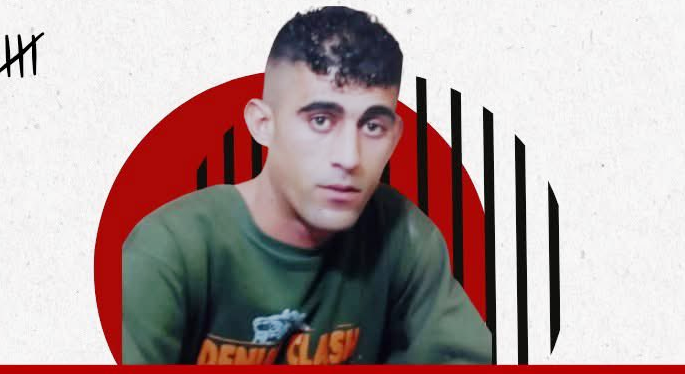
Palestinian abductee dies of systematic torture in Israeli Megiddo Prison
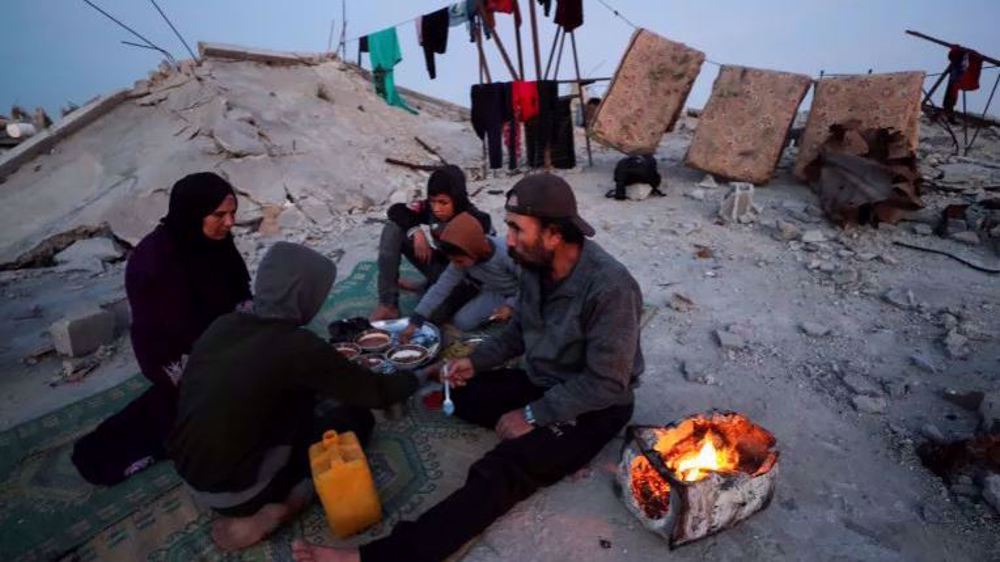
US, Europe complicit in Israel’s blocking of Gaza aid: Pro-Palestinian NGO
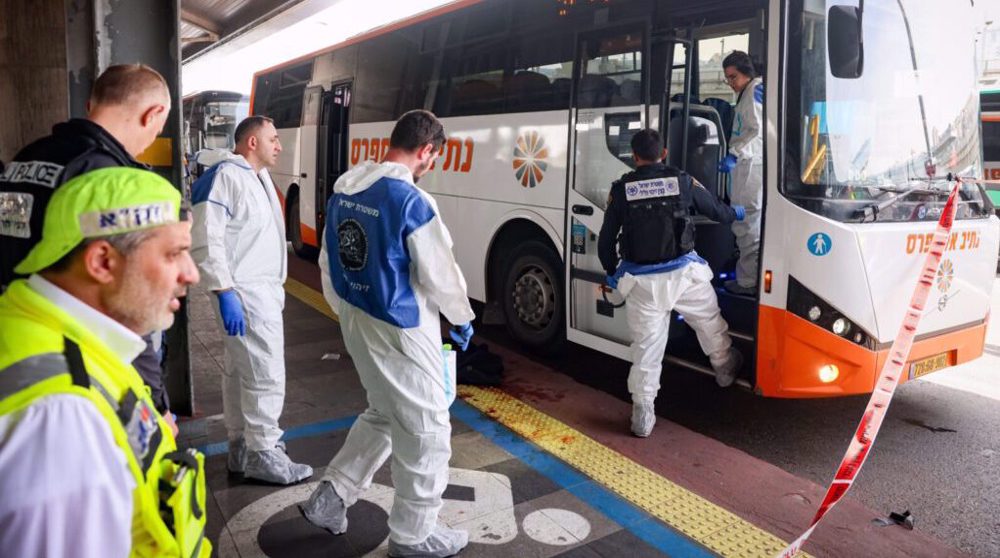
Hamas hails ‘heroic Haifa operation’ as natural response to Israeli genocide
Iran asks Turkish officials to avoid making incorrect remarks
OPEC+ to raise output for first time since 2022: Report
VIDEO | Reviving Gaza mosque
Grossi stresses IAEA pursues constructive relations with Iran
Editor of Pulitzer Prize-winning US newspaper fired over cartoon deemed ‘antisemitic’
Hamas: Second phase of Gaza ceasefire ‘sole way’ to free Israeli captives
Iran signs into law its free trade deal with EAEU
One dead, several injured as car rams into shoppers in Mannheim: German police


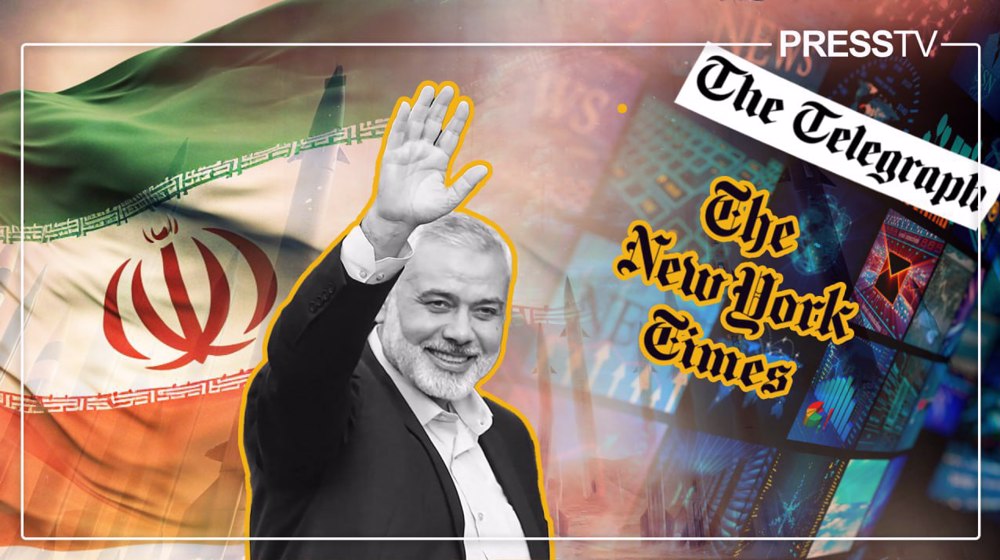
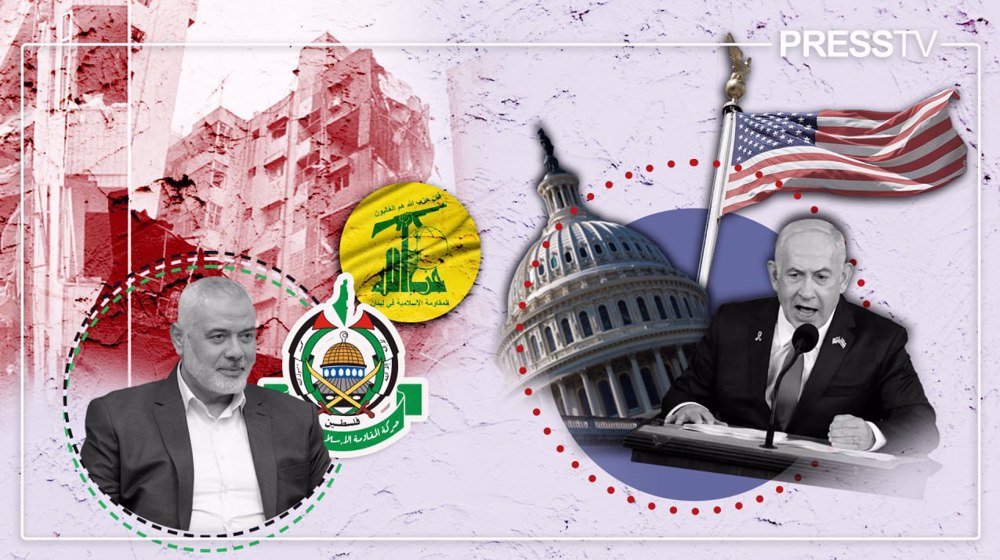
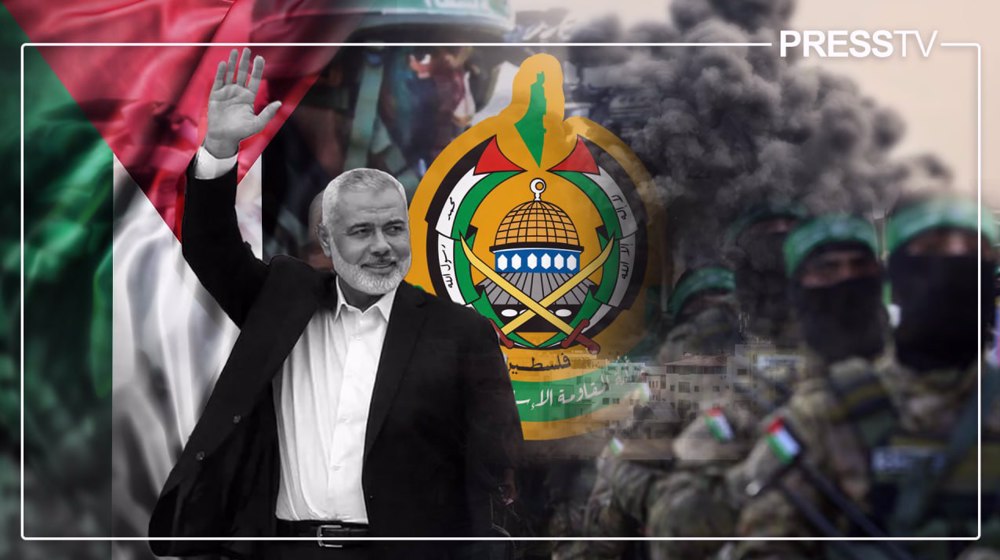



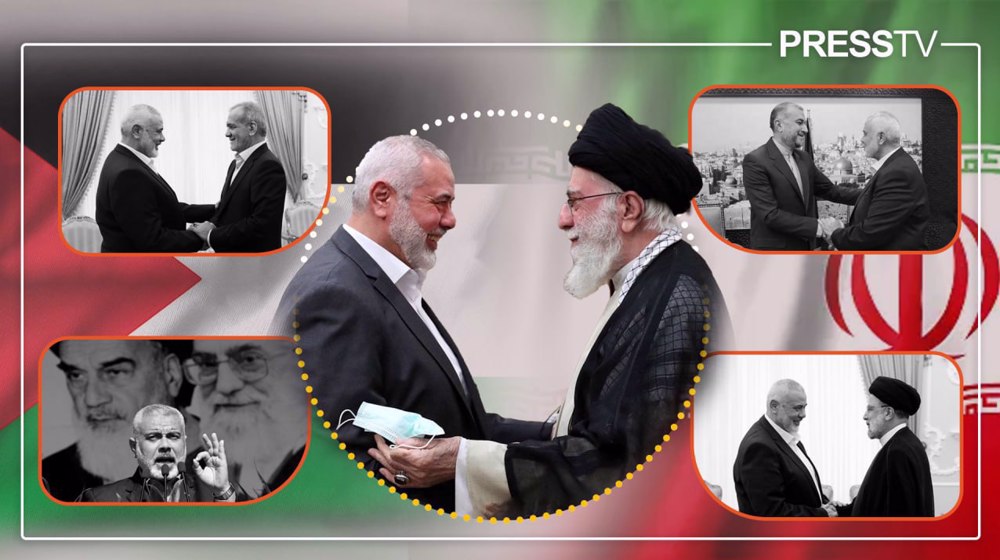
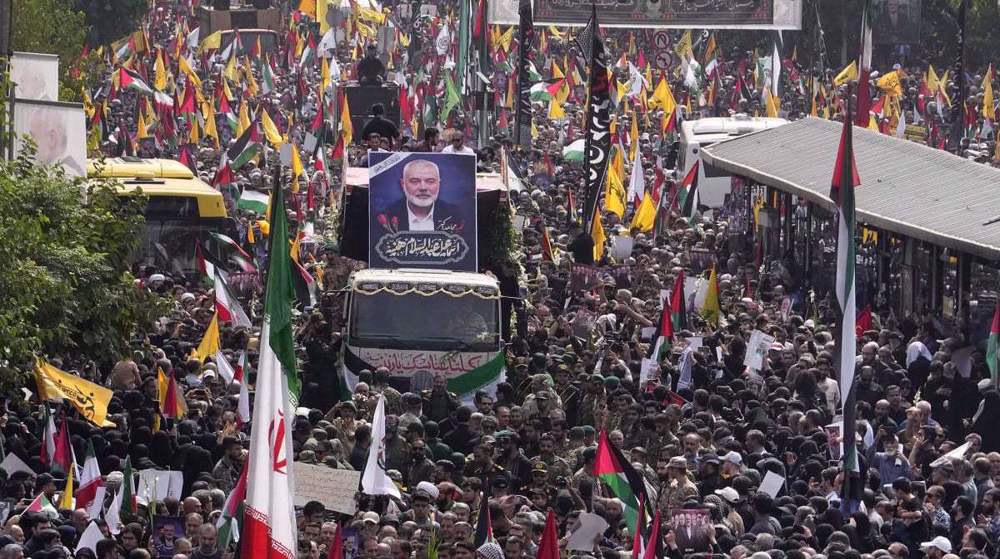
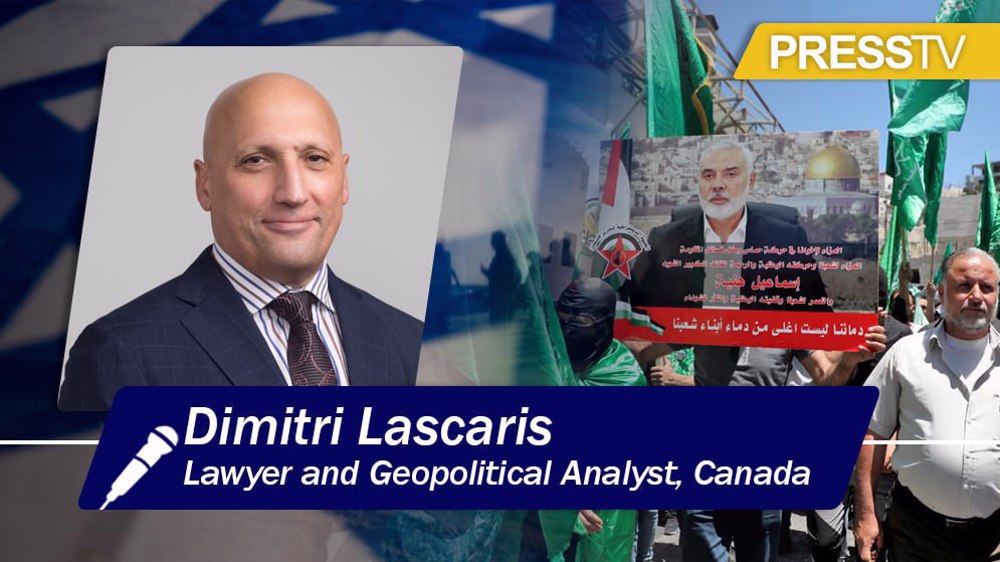
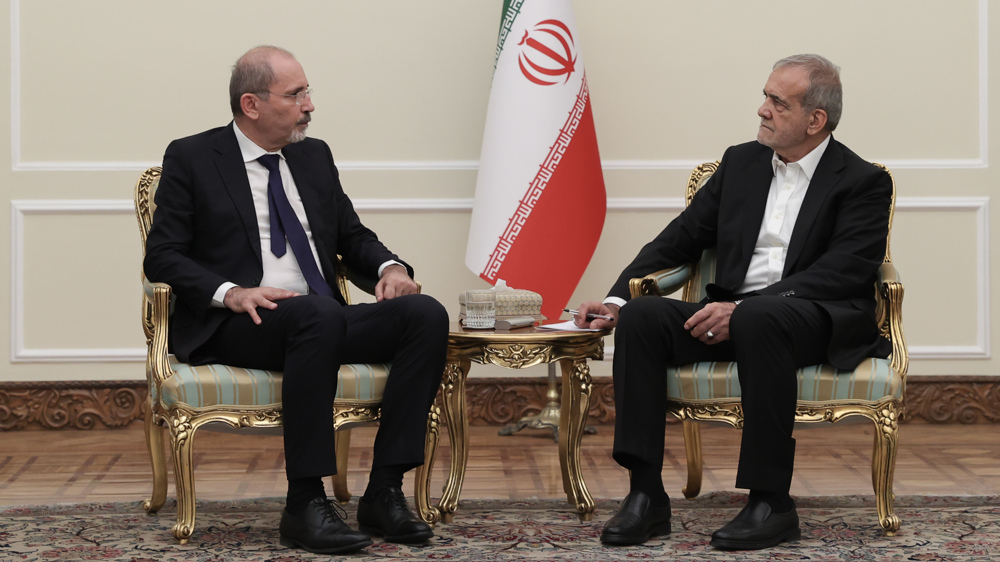
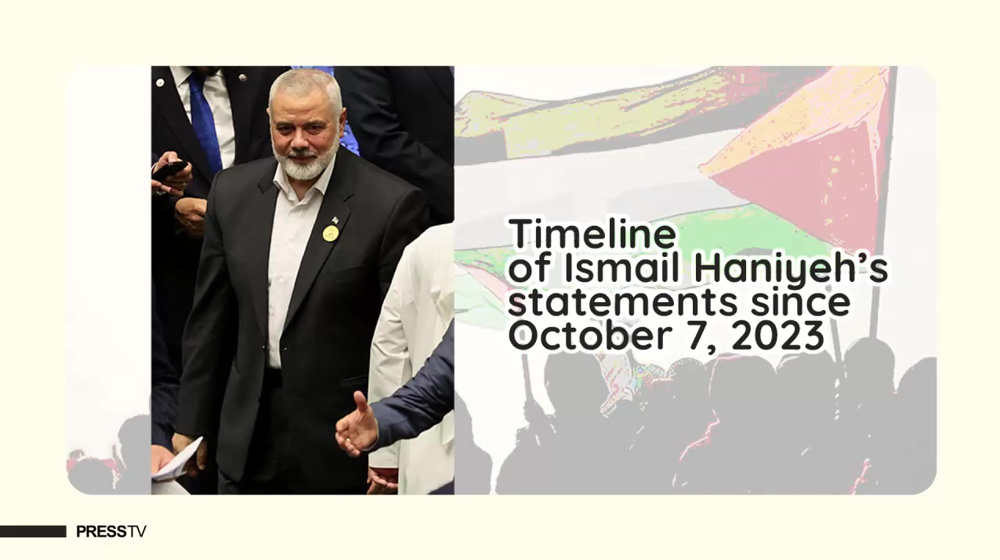

 This makes it easy to access the Press TV website
This makes it easy to access the Press TV website